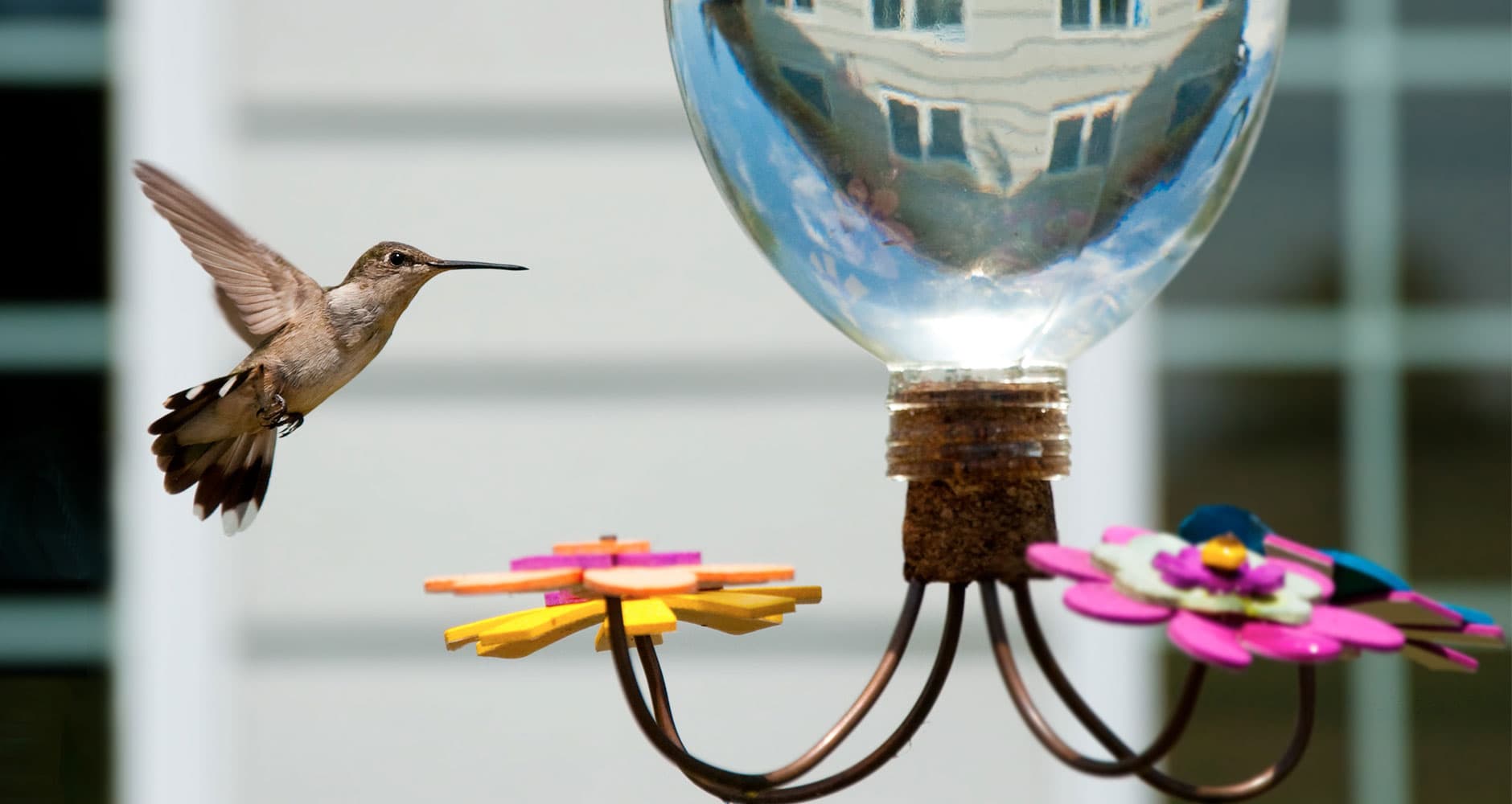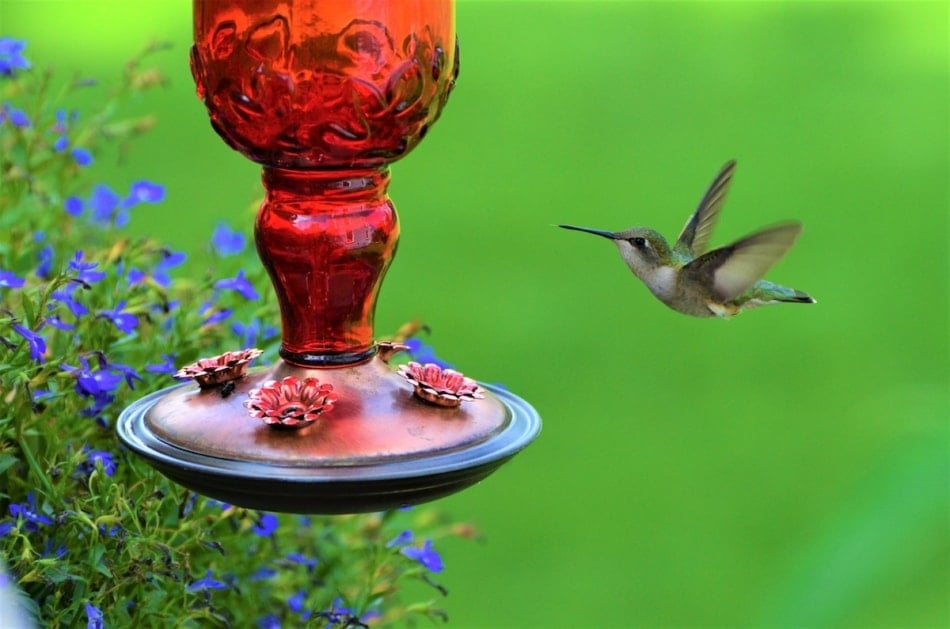When Do We Stop Feeding the Hummingbirds
Fall migration is underway for the hummingbird. Most North American hummingbird species migrate to Central America or Mexico for the winter; they travel nearly 4,000 miles—a long journey for such a tiny creature. But if you keep your feeders up, will it interfere with their migration? Will they stick around rather than take the trip nature intended?
Birds & Blooms expert Rob Ripma explains that hummingbirds migrate according to their internal, circannual rhythms and leaving the feeder up will not deter them from migrating. In fact, sugar-water feeders are important refueling stations for them along the way. Following these tips will allow you to help them on their journey south.

Preparing for the Trip
As hummingbirds prepare for migration, they need to feed more frequently to gain weight and store fat needed for the journey south. An increased intake of flower nectar and sugar-water from feeders will provide a weight increase of 25% to as much as 50% to help provide fuel for the migration.
10 Tips To Help Hummingbirds In Their Journey
- Certain species, such as the Rufous hummingbirds, are heartier and can endure colder temperatures than the Ruby-throated hummingbirds so they may show up later in the season— into October or even November. It it doesn't hurt to leave your feed up even through November.
- You can take the feeder down two to three weeks after you've seen the last hummingbird visit your feeder.
- Hummingbirds are territorial and spend a lot of time and energy chasing other birds away from the feeder site. Putting out more than one feeder can reduce fighting for dominant feeder rights. This can also help reduce mold formation, bacteria, and spoilage.
- Wondering if you should increase the ratio of sugar in the feeder solution for migrating hummingbirds? Four-parts water to 1-part sugar is the standard sugar-water ratio. Robin Grant, Cornell Lab of Ornithology's web moderator offers this advice, "High sugar concentrations could cause dehydration. In cold weather, you can use 1-part sugar to 3-parts water, but in warm weather, it's best to stick with the more traditional 1:4 ratio."
- Don't use red dye in your feeder. Red dye is an artificial, synthetic chemical. It is not needed to attract hummingbirds to liquid nectar. Keep their feed as close to natural as possible. Hang a red feeder instead
- Avoid placing the feeder in direct sun.
- Change the sugar-water solution in the hummingbird feeder every three days in hot weather.
- Clean the feeder with a brush and hot water. When needed, clean with a mild detergent and water. Rinse thoroughly before refilling with sugar-water.
- Refrigerate surplus sugar-water until refills are needed. Keep no longer than one week.

Did You Know?
- Hummingbirds do not travel in flocks, like most other birds, but migrate alone.
- September is the month we see the most hummingbirds venturing south. Although, stragglers can appear at your feeder in October.
- It takes about two weeks for a hummingbird to complete its fall migratory trek.
- Hummingbirds have excellent recall. They remember the location of your feeder and will return to the sites it has visited in the past.
Keep Learning
Learn more about Fall Bird Feeders
Have you ever heard of a hummingbird moth?
10 Facts About Hummingbirds That Will Amaze.
Join The Discussion!
Do you have a hummingbird feeder?
Is there anything else you are curious to know about hummingbird feeders?
What was one thing new you learned from this article?
Let us know in the comments below!

Deborah Tukua
Deborah Tukua is a natural living, healthy lifestyle writer and author of 7 non-fiction books, including Naturally Sweet Blender Treats. She has been a writer for the Farmers' Almanac since 2004.
Keep Exploring
silversteinhishat.blogspot.com
Source: https://www.farmersalmanac.com/hummingbird-feeder-55624
Post a Comment for "When Do We Stop Feeding the Hummingbirds"